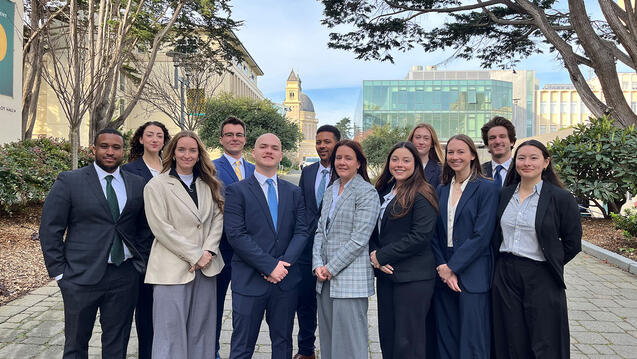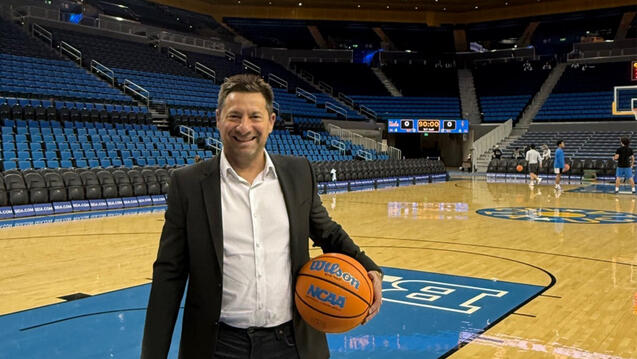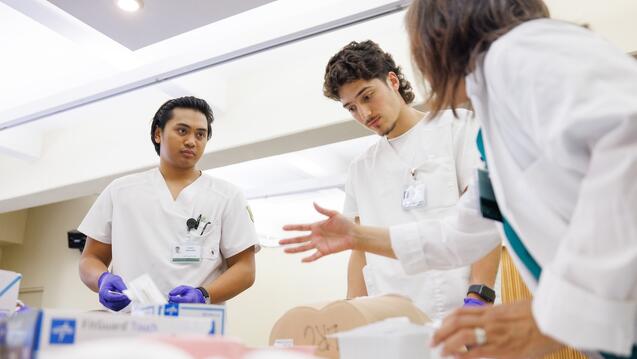Figuring Out How to Treat Coronavirus
A South San Francisco biotech company with ties to USF has discovered a potential treatment for COVID-19 that involves injecting sick people with antibodies adapted to attack the coronavirus.
Scientist Jacob Glanville, who serves on the advisory board of the USF biotech master’s program, is CEO of Distributed Bio and a prominent figure on the Netflix series Pandemic. He shared how the treatment works with Associate Professor Moira Gunn, director of bioentrepreneurship at USF, on her NPR radio show Tech Nation, in an episode called “Engineering Antibodies to Fight COVID-19.” They discussed Distributed Bio’s coronavirus research and the future of the virus.
Watch more on how Sarah Ives PSM ’15 and Distributed Bio CEO Jacob Glanville are part of the team working on a treatment for COVID-19.
How it Works
Distributed Bio’s potential treatment uses adapted antibodies from the 2002 SARS virus, a cousin to the current coronavirus, to attack the new virus.
The treatment is an injection of antibodies, as opposed to a vaccine that helps the body create its own antibodies. Though scientists are developing vaccines to combat the pandemic, one won’t be available for at least 18 months.
“Vaccines are great, but they're too far away,” Glanville told Gunn. “We need something now. Antibodies are definitely, in my mind, the best way to go, because they're just a super-fast way to make a very effective medicine.”
Another benefit is that, unlike a vaccine, the antibody treatment is not restricted to patients with healthy immune systems.
“You can give [the treatment] to people in the hospital, or you can give it to the elderly, and it'll provide about eight weeks of protection,” Glanville said. “You could also give it to hospital workers to basically immunize them for eight weeks.”
Distributed Bio is delivering the treatment to the U.S. military for initial testing. If it’s safe, it could be released for widespread use in September.
That said, a vaccine, when it becomes available, will provide longer protection against coronavirus.
“That's still helpful because at this point, we are thinking that this thing could become seasonal, that it will circulate, and it will mutate enough as it goes,” Glanville said. “We're going to have to deal with this not just as one outbreak, but as a permanent thing.”
USF Alumni on the Team
On TechNation, Glanville said his company depends on its strong ties with USF.
“I think the relationship with the University of San Francisco was part of what enabled my company to become successful,” he said. “They have this remarkable master's program in biotechnology, the PSM. I've been fortunate enough to have maybe 40 or 50 interns from that program, of whom I've hired 10.”
Two Distributed Bio researchers, Sarah Ives PSM ’15 and Christina Pettus PSM ’17, have been featured with Glanville in Pandemic for their parts in developing a potential universal flu vaccine.


